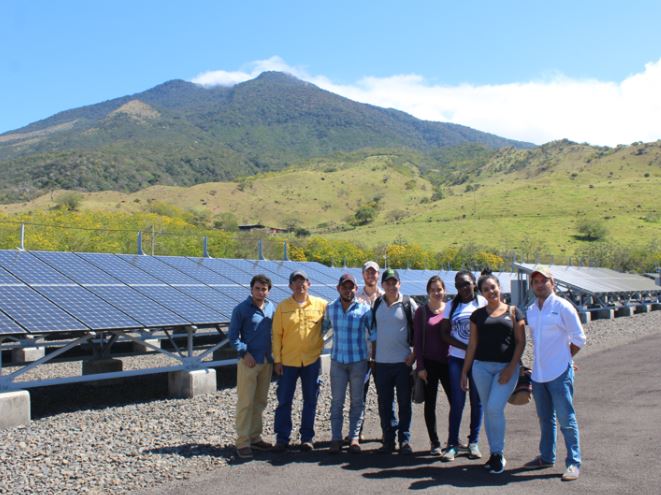Master’s and commanders of progress
The world changes constantly. To tackle the newfound challenges of today, education must evolve in lockstep. EARTH understands this.
With nearly three decades of experience in entrepreneurship, community work, sustainability and more, EARTH has consistently produced professionals distinguished from the rest. Today a necessity exists for advanced studies embracing the very principles that brought EARTH’s undergraduate degree such renown and that dig deeper into the knowledge the world needs. From that need sprung EARTH’s Master’s Degree in Agribusiness Innovation.
Square one:
“We, as EARTH University, are future-oriented,” said Róger Castellón, professor and master’s program coordinator at EARTH. “After much research, we discovered that there isn’t a single master’s degree in the world focused on innovation in the agribusiness sector. This new degree offers our graduates – and, soon, graduates of other universities – an important competitive advantage.”
Some unique features of the Master’s Degree in Agribusiness Innovation include:
- EARTH students completing their fourth year can take master’s classes as electives, counting toward the completion of their master’s degree and thus shortening the program’s duration from two years to one.
- In addition to the traditional academic component, at least two trimesters are spent gaining professional experience in a company, nonprofit, farm, ranch, cooperative, etc., as it pertains to innovation.
- Classes are taught in a mixed format, by EARTH faculty members, business professionals and experts from renowned institutions, such as the Inter-American Institute for Cooperation in Agriculture (IICA) and the Tropical Agronomy Research and Teaching Center (CATIE, for its initials in Spanish).
- The degree is completed at EARTH’s La Flor campus in Guanacaste, which allows students to learn in a lush tropical environment very different from that of the Guácimo campus.
Program mission and how to apply:
The program’s mission is clear: To offer students the knowledge and support to refine their business leadership skills in a global context rooted in social and environmental concern.
The program’s intended applicant should hold a minimum 3.5 GPA in their undergraduate studies and possess an intense interest in combatting climate change, activating social betterment and advancing global sustainability goals through business-sector innovation. Applicants must complete the online application, attach letters of recommendation and write an essay about the importance of agribusiness innovation for the progress of their community or region.

The first cohort of EARTH’s Master’s Degree in Agribusiness Innovation stands with Róger Castellón (fourth from left) at the La Flor campus in Guanacaste, Costa Rica.
The program:
The Master’s Degree in Agribusiness Innovation requires a minimum of 60 academic credits, including nine face-to-face modules (theory, lab work, field work), two guided modules (dual experience), independent student research, complementary courses and a graduation project.
“The concept of innovation has been well received. It allows for topics such as information technologies, robotics, geospatial information systems and more,” Castellón said. ”Technological innovation is explored heavily in this master’s. The idea is to give young people a greater sense of the problems that afflict us – climate change for example – not only from a crops perspective but also from a perspective of programming, software, forest monitoring, etc. We’re also implementing social innovation, as to not set aside the community components of the undergraduate degree.”
For Zamora (‘16, Nicaragua), “The expectation with this new master’s program is that, upon graduation, we will be innovative leaders in rural areas. Professionals setting trends in innovation that contribute to societal, environmental, business and agricultural innovation. I am totally convinced the globalized, growing, competitive and constantly changing world urgently demands new and different approaches to social, economic, environmental and human development.”
Currently the Master’s Degree in Agribusiness Innovation is available only to EARTH University students in the last year of their undergraduate degree.
EARTH Innovation Summit
On April 21, otherwise known as World Creativity and Innovation Day, EARTH played host to the first “EARTH Innovation Summit” at the La Flor campus.
The Summit began with a series of conferences centered on innovative subjects of social, environmental and technological interest – such as carbon neutrality, climate change, agribusiness innovation tools, and more. An innovation contest ended with Universidad Invenio of Guanacaste being named winner for its 3D printing project. The day concluded with a student-professional networking event.
Here are some photos from the Summit:











